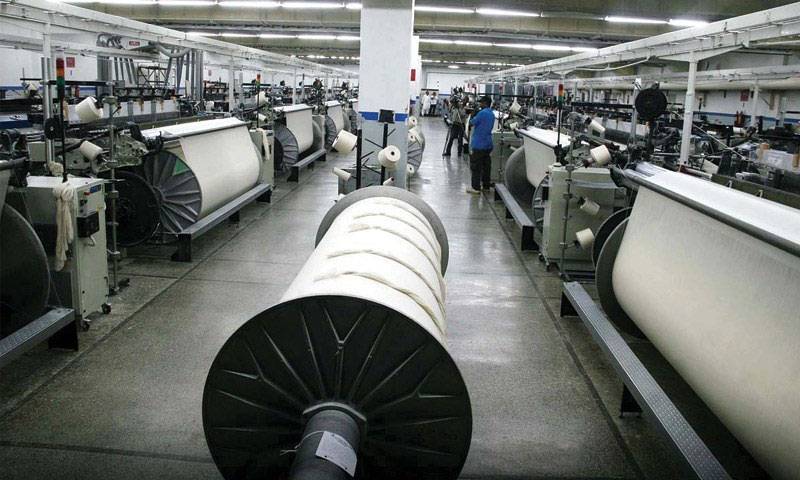LAHORE - Aamir Fayyaz, chairman of the All Pakistan Textile Mills Association (APTMA), while doing a stocktaking of the industry, dwelled on its strengths and the operational constraints in its optimal performance.
He said that the export-oriented industry contributed heavily to GDP, foreign exchange earnings and employment. The industry has reviewed the trade deficit that surged to $7 billion during the 1st quarter of the current fiscal year which was principally due to decline in exports.
The industry is optimistic given its potential to sustain international competition in the global textile market that operates on very low margins due to its fiercely competitive character.
He said the industry was poised for a reversal of the situation.
Policy measures decided for export-led growth lend a very positive and helping hand in the realisation of this textile industry objective.
These policy measures include the elimination of customs duty on cotton w.e.f. 1 Jan 2017, duty free import of raw materials like man-made fibre not manufactured domestically, graduating drawbacks of local taxes on yarn, greig fabric, processed fabric, home textiles, made-ups and garments, upon export, extension of long-term finance facility to indirect exports, input tax adjustment on packing materials, new gas and RLNG connections for captive and process use, notification of NEPRA-determined multi-year tariff for industry without incidence of surcharge for provision of electricity at regionally competitive rate of Rs.7 per KWh and provision of RLNG/system gas to the textile industry at Rs.600 per MMBTU.
These measures are facilitatory and remove the bottlenecks in the competitive operation of the textile industry.
The provision of an enabling environment by these policy measures would remove the needless and avoidable hindrances that presently impede proper industry performance and that have brought decline in exports.
All Pakistan Textile Mills Association chairman Aamir Fayyaz and other textile industry representatives held meetings with the Prime Minister twice and the Finance Minister three times in the past few weeks and impressed upon them that no country in the world had prospered without export-led policies.
Examples of countries that prospered by export-led growth include Germany, Japan, China, S. Korea, Malaysia, Bangladesh and Vietnam. The economies of all these countries grew on the strength of their exports.
Aamir Fayyaz informed that textile industry representatives had assured the Prime Minister of the elimination of structural imbalances in the economy given the removal of constraints in the full-potential operation of the textile industry. The resultant increase in textile exports would transform the economy and put it on rails for achieving economic growth.
Aamir Fayyaz said that the policy measures are a much-needed step in the right direction and while creating conducive conditions for the industry to operate without shackles would provide the stimulus for increased exports by a reinvigorated textile industry.
Aamir Fayyaz urged for an announcement of these policy measures without further delay to arrest the rapidly declining output including closure of manufacturing facilities of a very competitive textile industry.
Aamir Fayyaz shared that buying by international brands and big retailers for the next season has already started and the industry is likely to lose the growth opportunity if the policy announcement is delayed further.
Fayyaz called for announcement of the measures before Pakistan’s share in the international market fell further so that a beginning for the reversal of the trend could be made.
The much-awaited announcement of the policy measures is also necessary so that textile millers could carry out investment plans for BMR purposes.
Delay would not send the right signal and would break the momentum of the industry’s eagerness to rise up to the challenge. While competing in the global textile market time is of the essence for availing of the opportunity.






